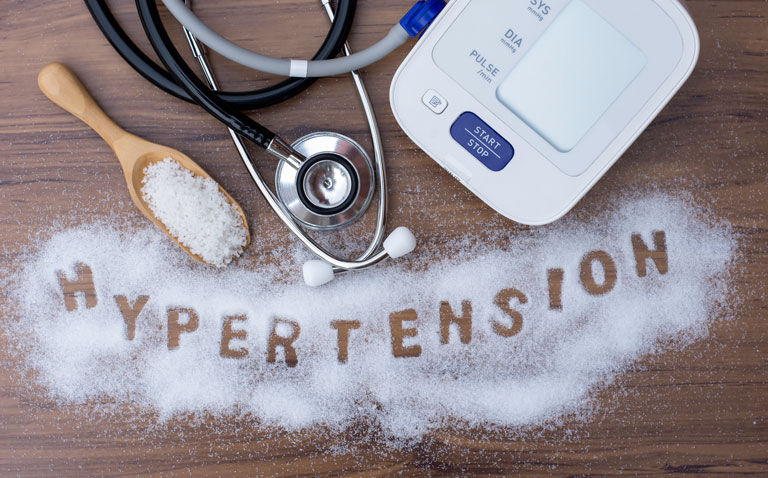A moderate dietary reduction of salt intake gives rise to a significant reduction in blood pressure in those with primary aldosteronism
German researchers have observed significant reduction in blood pressure (BP) following a moderate dietary reduction of salt intake in patients with primary aldosteronism.
The link between intake of sodium (in the form of salt) and hypertension is widely recognised such that reducing dietary intake not only lowers BP but is also associated with a reduction in morbidity and mortality from cardiovascular diseases. The presence of primary aldosteronism (PA) is a common cause of secondary hypertension and associated with excess cardiovascular morbidities. In fact, having PA is associated with more end-organ damage and an excess cardiovascular morbidity, including heart failure, stroke, nonfatal myocardial infarction, and atrial fibrillation compared to primary hypertension. An unfortunate consequence for patients with PA is a decreased taste sensitivity for salt, favouring high sodium consumption. Given this relationship, the German researchers wondered if a moderate dietary reduction in salt in patients with PA could reduce blood pressure.
Researchers identified a group of PA patients already under treatment with anti-hypertensives from a national registry. Individuals were recruited for a dietary salt restriction over 12 weeks with structured nutritional training and consolidation by a mobile health app. Salt intake and adherence were monitored every 4 weeks using 24-h urinary sodium excretion.
Moderate dietary salt reduction and blood pressure
A total of 41 participants with a mean age of 50 years (52.2% female) were included in the analysis.
At the end of the study, dietary salt intake which was originally estimated from urinary excretion to be 9.1 g/day, fell to 5.2 g/day (p < 0.001). In addition, systolic blood pressure reduced from 130 at baseline to to 121 mm Hg (p < 0.001) and diastolic blood pressure from 84 to 81 mm Hg (p = 0.003).
In addition, participants noted a significant weight loss of 1.4 kg (p < 0.001), largely due to water loss and an improvement in pulse pressure, an indicator of arterial stiffness (p < 0.001). Interestingly, there were also improvements in depression scores (p = 0.008).
The authors concluded that moderate dietary salt restriction intake in patients with PA substantially reduces BP and depressive symptoms.
Citation
Schneider H et al. Moderate dietary salt restriction improves blood pressure and mental well-being in patients with primary aldosteronism: The salt CONNtrol trial. J Intern Med 2023










